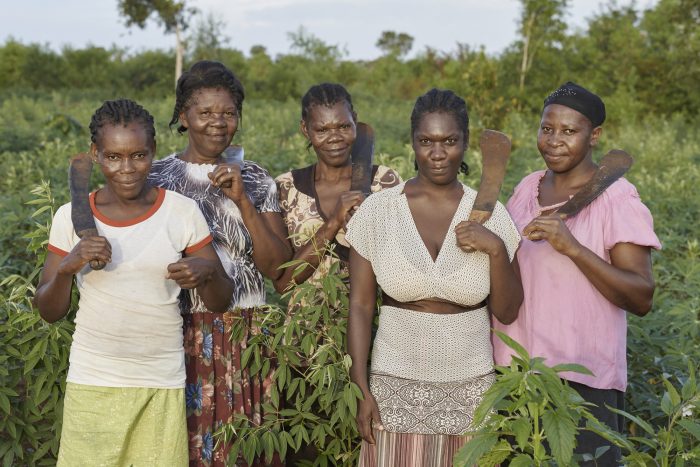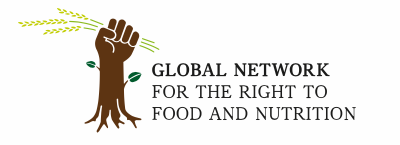
 The Commission on the Status of Women (CSW) is an opportunity highlight some of the important work in the UN Peasants Declaration, which will have significant impact on the rights and lives of rural women and girls. This Declaration will also impact the upcoming Conference of Parties (COP24), the international climate change conference taking place in Krakow, Poland this December. Land use and seed diversity are key to develop solutions for responding to climate-induced impact. Land and seed rights are a cornerstone of rural women’s and peasants’ rights.
The Commission on the Status of Women (CSW) is an opportunity highlight some of the important work in the UN Peasants Declaration, which will have significant impact on the rights and lives of rural women and girls. This Declaration will also impact the upcoming Conference of Parties (COP24), the international climate change conference taking place in Krakow, Poland this December. Land use and seed diversity are key to develop solutions for responding to climate-induced impact. Land and seed rights are a cornerstone of rural women’s and peasants’ rights.
“We are peasant women. We are many. We are the Guardians of fertile land and reproductive seeds. We are ‘farmacologists’. We protect medicinal plants and generate local knowledge.”
 Several ACT members are also founding members of the Global Network for the Right to Food and Nutrition, which for ten years has gathered stories and raised the voices of peasants, fisherfolk, pastoralists, landless people, consumers, urban people living in poverty, agricultural and food workers, women, youth, and indigenous peoples – that recognize the need to act jointly for the realization of the right to adequate food and nutrition. The Network’s voice has helped to shape the new draft of the UN Peasant Declaration.
Several ACT members are also founding members of the Global Network for the Right to Food and Nutrition, which for ten years has gathered stories and raised the voices of peasants, fisherfolk, pastoralists, landless people, consumers, urban people living in poverty, agricultural and food workers, women, youth, and indigenous peoples – that recognize the need to act jointly for the realization of the right to adequate food and nutrition. The Network’s voice has helped to shape the new draft of the UN Peasant Declaration.
The revised draft UN Peasants Declaration of 12 February 2018 recognises that access to land, water, seeds and other natural resources is increasingly at risk for rural people. The Declaration calls for support to agricultural practices of indigenous people and rural communities that are in harmony with nature, with Mother Earth . These practices include respecting the biological and natural ability of ecosystems to adapt and regenerate through natural processes and cycles.
The Declaration stresses that peasant and other rural women play a significant role in their economies, including through their work in the non-monetized sectors of the economy, but are often denied tenure and ownership of land and productive resources. To redress this injustice, their right to access courts, to seek immediate redress, and to be protected from violence, abuse and exploitation must be respected, fulfilled, and promoted.
Knowledge generated by peasant women provides insights into the complex matrix of nature. Microbiological research is now able to visualise the extent to which we are what we eat; discovering that soils are an integrated system that nourishes communities and keep them healthy. Traditional peasant women have known of the health benefits of phytonutrients and protective bacteria for a long time; they are ‘farmacologists’, a term coined by Daphne Miller from University of California, San Francisco.
For the first time, a UN Declaration provides a comprehensive list all of rural women’s and girls’ rights and the importance of their contribution to life for all in times of climate change. These include:
- The Right to seeds (Article 19), which calls for the protection of women’s traditional knowledge relevant to plant genetic resources for food and agriculture. It affirms the right to save, use, exchange and sell their farm-saved seed or propagating materials. It calls for the respect of women’s rights to rely on their own seeds or on other locally available seeds of their choice, and to decide on the crops and species that they wish to grow. And it calls for research into ‘orphan crops’.
- The Right to biological diversity (Article 20), which establishes the right of women peasants and rural communities to use and develop biological diversity and associated knowledge; and the right to traditional agrarian and pastoral and agroecological systems upon which their subsistence and the renewal of biodiversity depends, and the rights to the preservation of the ecosystems in which those processes take place.
- The Right to physical and mental health (Article 23), which includes the right of women peasants to use and protect their traditional medicines and to maintain their health practices, including access to and conservation of their plants, animals and minerals for medical use.
It is important to recognize this Declaration and the legitimacy of peasant women and girls as rights holders around the world as the Commission on the Status of Women continues to discuss the empowerment of rural women and girls. For we know since the adoption of the Beijing Platform for Action that access to and control of productive and reproductive resources is a precondition for enhancing gender equality. It will also have a positive effect on preventing violence against women and girls and be key to their wellbeing and the full realisation of human rights.
_____________
 Karin Ulmer is Senior Policy Officer with ACT Alliance EU (previously APRODEV), specialising in EU trade policies and global food security. The current focus is on human rights and trade, land and seed issues, agricultural policy and research. Based in Brussels. Educational background in cognitive, social and human science. German nationality.”
Karin Ulmer is Senior Policy Officer with ACT Alliance EU (previously APRODEV), specialising in EU trade policies and global food security. The current focus is on human rights and trade, land and seed issues, agricultural policy and research. Based in Brussels. Educational background in cognitive, social and human science. German nationality.”
